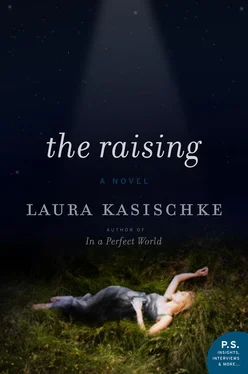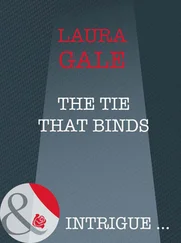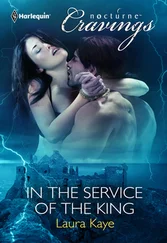“I have a man-size hunger,” he said. “I’d like to wait for a Bacon-ator if you don’t mind.”
They’d headed together to the parking garage closest to Godwin Hall then. It was a short walk, but the sky was spitting a damp snow, and they had to keep their heads down. It would have been impossible to carry on an easy conversation, even if Mira had been in a state of mind that allowed for small talk.
Jeff was parked on the first floor, under a sign that read, NO PARKING. He pulled the ticket off his windshield and tossed it into the backseat without saying a word about it.
His car was a mess.
Mira had, she supposed, expected a Porsche. Although she knew Jeff couldn’t make much more money than she did, she also found herself so continually surprised by the opulent houses and the exotic vacations of her colleagues (who had the same salaries that, for Mira and Clark, barely covered the rent) that she’d grown used to assuming that most academics had secret sources of income—trust funds, inheritances, law suit settlements. If Jeff were one of those, with that kind of money, Mira had imagined he would spend it on something flashy, something women would be impressed by, like a sports car.
But not only wasn’t this a sports car, it was even rustier and more exhausted-looking than Mira and Clark’s car:
The door of the glove compartment had been torn off somehow, and Jeff had stuffed it with candy wrappers, many of which had fallen on the floor. The backseat was a pond of memos and flyers and Wendy’s bags. (Where, Mira wondered, looking back there, would she put the twins? Clark had their car seats, too, she realized. But she’d have to worry about that later.) It took Jeff several tries to start the car—and once he did, the motor made a sound like a spaceship taking off, only to grow disconcertingly silent as he started to drive. It crossed Mira’s mind that they were actually coasting out of the parking ramp, with no engine at all, but Jeff seemed in control of things, and the confidence he exuded—popping candies into his mouth, fiddling with the ancient-looking radio dial—was reassuring. He said, “I know she doesn’t look like much, but she’s as reliable as they get. We’ll be the fastest thing on the freeway, sweetheart.”
The little endearment did not seem to Mira to be a come-on, or even overly familiar. It seemed, instead, to be an attempt to comfort her—and, again, for the hundredth time that day, tears sprang to her eyes, and she vowed to herself that she would buy that slim collection of his poems she’d seen at the bookstore on the shelf of Local Authors as soon as they got back: The Blind Horizon. She would read them carefully, and ask him about his influences, his inspirations and aspirations. She would treat him with more respect. She was sorry, so sorry, that she hadn’t done so before now.
Jeff flashed his U-Parking pass at the attendant in the booth. Then they were winding their way through campus.
The day was getting colder. The sky, darker. It would be a matter of minutes, Mira felt certain, before the first blizzard of the year began in earnest—and, still, there were boys crossing the street in short sleeves, girls in mini-dresses and tank tops. Was this vanity, ill-preparedness, or did their youth give them some sort of metabolic advantage in the cold?
Mira herself was shivering as Jeff’s car’s heating system blew cool air smelling of dust through the vents and into her face.
Jeff slowed down at an intersection full of pedestrians and bicyclists, and at the corner of State and Seymour, Mira saw Dean Fleming standing under the crosswalk sign, waiting for the signal to change. His red tie had blown over his shoulder, and he had his tweed cap pulled down low on his head of bushy gray hair. He looked, it seemed, right at Mira as they passed—but if he registered who she was and that she was a passenger in Jeff Blackhawk’s junker, it didn’t show on his face. An enormous snowflake landed on the windshield right in front of Mira, and made no sign of melting.
“Freeway? Wendy’s?” Jeff asked.
“Sure, yes,” Mira said. “And, Jeff, I’m so, so grateful for this.”
“I know,” he said, and ground his molars down on the piece of candy in his mouth, turned to her, and winked without smiling.
Craig was in his boxer shorts and an old, soft SKI FREDONIA! T-shirt, no shoes. He knew he’d locked himself out as soon as he heard the inner workings of the knob and the doorjamb click into position, but he was too freaked out to care.
He was bathed in sweat, and the sweat was cold, but instead of shivering (it was always a lot colder in the hallway than in the apartment because people were always propping the front door open so their friends could come in without having to be buzzed in) he was burning. He felt the way he used to when he was running track in middle school, before he started smoking dope instead of running track: that feeling, after a long run, that somebody was giving you a bear hug from behind, and it was crushing your lungs, and you were desperate for air, but that the temperature of the air was seven hundred degrees, and breathing it in short little gasps was going to set your insides on fire.
He leaned over in the hallway, trying to stop the gasping, the way the coach had showed them back in Fredonia, and then he put his hands on his knees and tried to count to four as he inhaled through his mouth, hold it for four, exhale to four, but he was panting about ten times faster than that.
He’d thought it was Nicole. He’d been sure of it. That Nicole was calling him from…
He didn’t hear the Cookie Girl come out of her room, and didn’t know she was there until she cleared her throat beside him, and then he jumped back about a foot, standing up straight, clutching his chest. Her eyes sprang wide open in alarm, and she said, “What’s the matter ?”
It didn’t even occur to Craig, yet, that he was half-naked, crazed looking, and that he didn’t know this girl. He said, “I don’t know. Someone’s fucking with me. Someone’s haunting me.”
A sad look crossed the Cookie Girl’s face, as if he’d told her something she’d dreaded hearing but had fully expected to hear. Her small, pale face in the dim hallway light looked, he thought, anguished. It was the same expression she’d had on her face just before she’d told him, at the mailbox, in a monotone, “Killed a guy on a bike. I was sixteen.” Now, in a sad, calm voice, she asked, “Is your roommate home?”
Craig shook his head.
“Did you lock yourself out?” She looked toward his closed door. All Craig could do was nod.
“Look,” she said. “Come in here.” She gestured for him to follow her to her apartment. “My roommates are out. You can sit on the couch and cover up with a blanket, and I’ll call the landlord to let you back in.”
The Cookie Girl hopped, then, on her one good foot, to the door, and turned to look behind her to make sure he was following. She pointed at the couch for him to sit on, and hopped around a corner, out of sight. “I’ll get the phone,” she said as she hopped.
The air inside the Cookie Girl’s apartment smelled closed and flowery to Craig. It reminded him—painfully, suddenly, completely—of Josie and Nicole’s dorm room: that smell of girls’ foreign products, perfumes, toilet waters, conditioners, clean clothes, floral soaps. And also chemicals, like nail polish and nail polish remover, and witch hazel, maybe—that’s what his mother used to clean her face with, wasn’t it? And creams and lotions with honey and buttermilk in them.
He sat on the Cookie Girl’s couch and put his elbows on his knees and his head in his hands, and in a few seconds she’d hopped back out with the phone and a soft, pink blanket. She wrapped the blanket around his shoulders and held out the phone to him. When he just stared at it blankly, she said, “Okay. I’ll call him.”
Читать дальше












